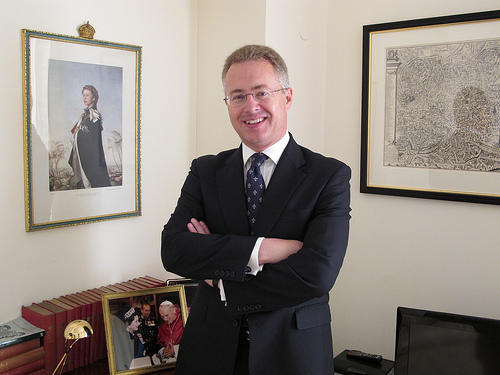
Modern diplomats, and modern Popes, are in the communications business. It remains right that there are still some government activities that are conducted behind the scenes, in confidence, with discretion, without fanfare. But modern diplomats must also persuade, which means delivering a convincing message, sometimes to the broadest possible audience, including on twitter and other social media (the rather ugly neologism is “twiplomacy”).
And that is one thing we share with Church leaders. Pope Francis dedicated a large part of his Apostolic Letter Evangelii Guadium to the importance of communication. “Positive preaching”, he wrote, is essential to evangelisation. And “the message has to concentrate on the essentials”.
The best of social media forces us to do just that, and it is one reason why British ambassadors around the world are encouraged to blog, tweet, and find different ways to reach our audience. Using the web has its risks, without doubt. Not using it even more so, because others will fill the space. Archbishop Celli, President of the Pontifical Council for Social Communications, underlined this eloquently in a recent interview for Vatican Insider. He reminded us that social networks are part of the everyday reality for many people, and cited Pope Francis’s words to Rome university students: “Don’t be afraid to become citizens of the digital world”.
As an embassy, we cannot compete with Pope Francis’ 12 million Twitter followers, and 60 million retweets. We are delighted, though, that we have broached the mark of 5,000 twitter followers recently, on our twitter account @UKinHolySee.
The global nature of our followers says something about the interest in the Holy See from around the world. 43% come from the UK, as you might expect, but 13% are from the US, 11% from Italy (presumably including a few from within the Vatican), around 100 each from Ireland, Canada, Spain, Australia and the Netherlands, as well as followers from 25 other countries. We shall continue trying to inform and stimulate all those who follow us, whether through this blog, twitter, or other social media we use.
We also thought we might celebrate the landmark with a small prize. What do you think about social media in the world of diplomacy and the Church? Does it work for you? Should we avoid it? The best answer to these questions, on whichever medium, will win a copy of our recent publication “Britain and the Holy See”, which brings together material about the historical, ecumenical and political relationship between the UK and the Holy See. We look forward to hearing from you.
